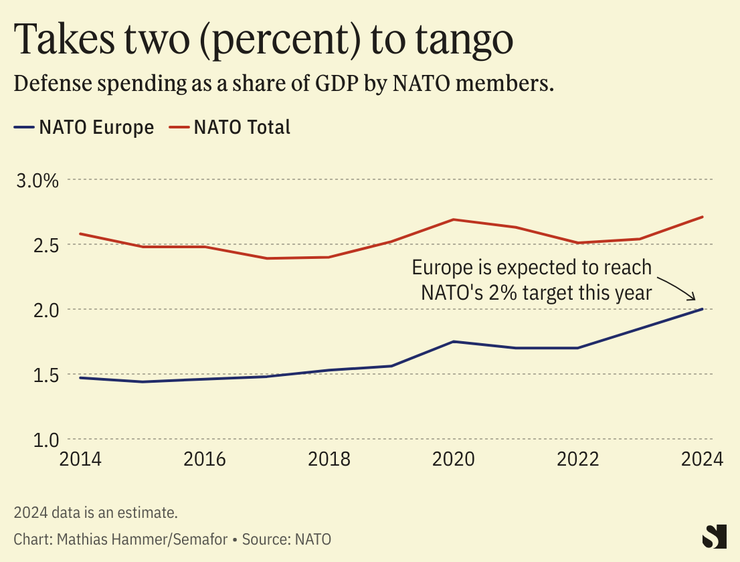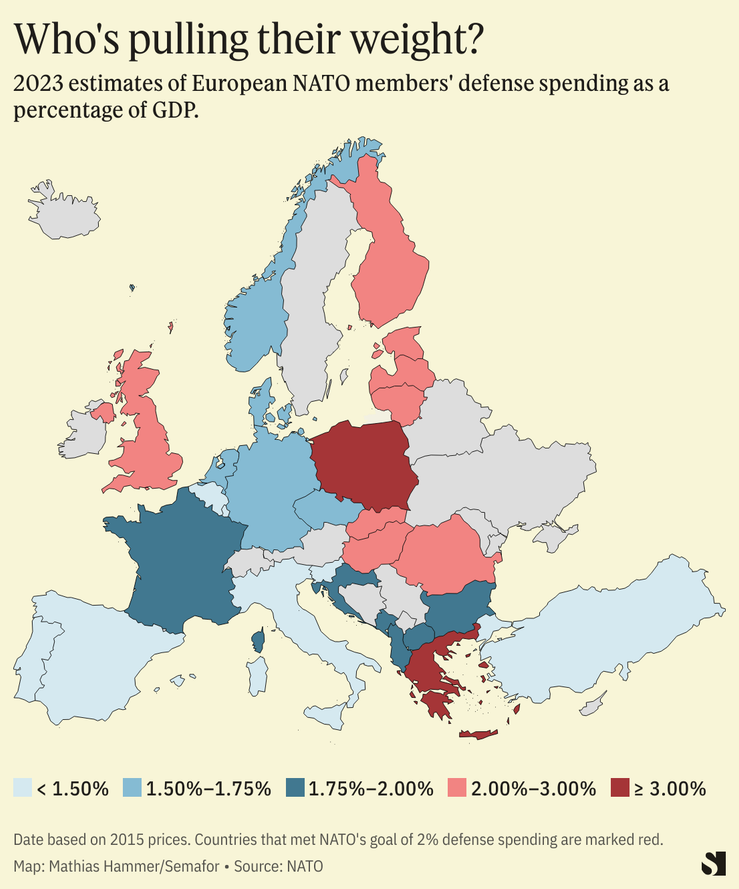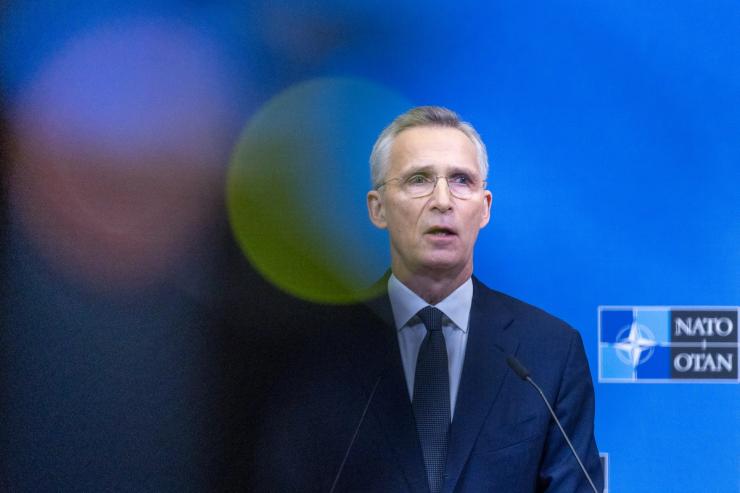The News
As NATO defense ministers meet in Brussels to discuss further military support for Ukrainian forces facing critical ammunition shortages, Donald Trump’s recent threats against the alliance are expected to loom large.
The Republican frontrunner’s repeated criticisms of the 31-member military alliance reached a new intensity on Saturday, when the former president said he would “encourage” Russia to do “whatever the hell they want” to NATO members that did not spend enough on defense.
NATO Secretary-General Jens Stoltenberg forcefully rebutted the comments Wednesday, saying that 18 of NATO’s 31 members were on track to spend at least 2% of their GDP on defense, a commitment few European states have met in recent years. NATO officials expect this number to rise as member countries move to increase their budgets following what Western officials have described as a growing Russian threat to Europe.

The immediate focus of the meeting will be aid to Ukraine, which is facing critical shortfalls in artillery shells as U.S. military assistance has largely run out. “We do expect to see a number of our allies and partners once again coming forward with additional forms of assistance for our friends in Ukraine,” the U.S. Ambassador to NATO Julianne Smith said on Tuesday.
SIGNALS
Trump’s NATO attacks spark renewed calls for boosting Europe’s defense
Trump’s repeated attacks on NATO have left Europe more uncertain than ever about the future of the defensive alliance. Polish Prime Minister Donald Tusk called the comments “a cold shower,” while pointing out that his country spent more than 4% of GDP on defense. “We need a second life insurance, not in substitution to or against NATO but in addition,” France’s foreign minister warned. While European leaders have called on the continent to prepare for a possible future without U.S. military assistance, the CEO of Germany’s biggest defense firm, Rheinmetall, told the BBC that Europe will need 10 years to prepare for any serious conflict.
Uncertainty remains, however, about whether Trump actually meant what he said. Several Trump advisers told Politico that the comments were simply the candidate’s strategy to get NATO members to boost their spending. “He was at a rally and it’s meant for right-wing outlets like One America Network. Don’t pay attention to them,” one source close to Trump said. But Trump and his allies have discussed setting up a two-tiered NATO alliance, in which NATO’s Article 5 security guarantee would only apply to countries that meet certain defense-spending targets, Bloomberg reported.

Defense meeting comes at a perilous moment for Ukraine
U.S. Defense Secretary Lloyd Austin opened Wednesday’s session of the Ukraine Defense Contact Group, a gathering of more than 50 countries coordinating military support for the war-stricken nation, by saying the group was working on meeting Kyiv’s “urgent need for more artillery, ammunition and air defense missiles.” But the U.S. has run out of money to send weapons or ammunition to Ukraine, and a new funding package faces a rocky path in Congress.
Ukraine is only firing a third of what its defense minister called the “absolute critical daily minimum requirement” of 6,000 artillery shells each day, the Financial Times reported, while troops complain that personnel shortages have left army battalions acutely overworked and exhausted, according to The Washington Post.
“Most likely, I think, the front will collapse somewhere like it did for the enemy in 2022, in the Kharkiv region,” one Ukrainian soldier told the Post, referring to a sudden Russian military collapse in 2022 when Ukrainians found a weak spot in Russia’s undermanned defensive line. Oleksandr Syrskyi, the new chief of Ukraine’s armed forces, warned that troops were “leading defensive operations in extremely difficult conditions.”
Trump threat comes as linchpin NATO leader expected to depart this year
Jens Stoltenberg, NATO’s long-serving secretary-general, is expected to leave office in October, sparking a race for the alliance’s top job. Stoltenberg has kept the alliance united throughout the war in Ukraine, and his leadership has been cited by many European officials as the key factor in why NATO survived Trump’s presidency. His replacement may be announced within the first quarter of this year, U.S. ambassador to NATO Julianne Smith said.
The selection of a new NATO leader happens through talks led by the grouping’s most powerful states – a process that led one European diplomat to deem it the “least transparent election of all elections,” in comments to Foreign Policy last year. Longstanding Dutch PM Mark Rutte has emerged as the favorite to take over, and has gained widespread support from key NATO countries — although some of NATO’s eastern flank want an Eastern European to lead the alliance for the first time, Bloomberg reported.



